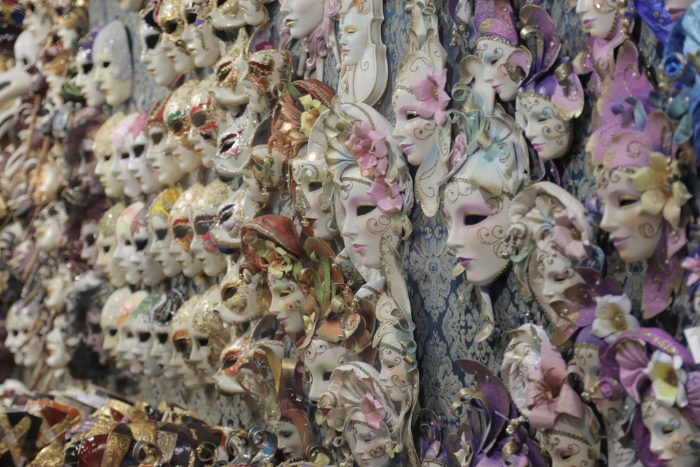Almost everything John Ronald Ruel Tolkien wrote was non-fiction. The names and details were no doubt created by him, but through his characters, real emotions surfaced. A regular resident of Oxford, and initially a tutor, Tolkien rose through the collegiate ranks to become a professor of medieval languages and literature for more than two decades.
For a significant portion of the time that Tolkien resided at Oxford, it was also home to Clive Staples Lewis who attended Oxford and then went on to teach at the University.
Lewis and Tolkien’s first meeting was not only by chance but also filled with apprehension: In his diary, CS Lewis wrote of the
“smooth, pale, fluent little chap” although had no harm in him: only needs a smack or so.”
They soon discovered their shared interests in poetry, languages, myths and telling fables and folklore. They disliked contemporary culture and largely ignored politics and news.
Their relationship, although symbiotic in a lot of ways was fraught with literary squabbling, rivalries and disagreements in the others works. But all the same, great respect for the other led them to form a group called the Inklings. The drive behind the new group was simple and allowed for collective creativity and mutual benefit. Every Thursday evening, the group would get together and discuss unfinished works. The meetings were informal, usually starting in Lewis’s classroom at Oxford, sometimes continuing at a nearby pub. Although these sessions provided what Tolkien and Lewis needed to further their writing, they also provided a channel for their relationship to grow into something else.
The Ubiquity of Social Masks
This concept of a public persona and a private person, described by social scientist Timur Kuran, who labelled it as “Preference falsification”. Quite simply Kuran states that all of us tend to have two preferences: privately reflecting a real belief and sense of reality; yet in public, we are as if in a masquerade, veneered by the faces we wear to breed a social acceptance.
This concept is evident in political circles. But it is also ubiquitously apparent in the manner we respond to social influences and foster relationships. We experience this diastasis in our own lives because very few of us share all of our private thoughts publicly. At times for fear of retribution. Because strongly differing opinions between new people can sometimes create unnecessary conflict, and perhaps for operational requirements in a world bound by social contracts, this may indeed be the better way for survival and eventual progress.
Of course, this equates to all of us having two parts to ourselves; one that the world sees and the other we hide and reveal only to ourselves.
And yet, there are times when we show off this innermost self to another, not caring about the repercussions of doing so — the moment we shed our social masks and cross over the line of preference falsification. A new person, a stranger invited into our own strangely beautiful and personal world, allowing authentic relationships to form and flourish.
In the case of Lewis’ and Tolkien’s relationship, they fostered these bonds over a while at the Inklings. Despite the initially guarded approach to each other in their fledgling efforts as novelists, they soon became the others, first readers; in turn, this led to a meaningful relationship for many a year to come. Many years later of CS Lewis, Tolkien would remark:
“The unpayable debt that I owe to him was not influence but sheer encouragement. He was for long my only audience.”
And of Tolkien, Lewis once wrote to his brother telling about their visits:
“It has also become the custom for Tolkien to drop in on me of a Monday morning for a glass. This is one of the pleasantest spots in the week. Sometimes we talk English school politics, sometimes we criticize one another’s poems, other days we drift into theology or the state of the nation; rarely do we fly no higher than bawdy and puns”.
This initial disunion between two people belongs to each bearing an invisible wall to create a social persona. And meaningful relationships need these walls to break down, to create a safe space, to enable a nakedness that would otherwise make one feel vulnerable. The creation of an authentic and sincere relationship occurs when we can let go of this sense of embarrassment that would otherwise hold us back. Once we cross over this symbolic line, once there is nothing but authenticity, a vulnerability held up by a sense of courage; life is suddenly far better than before, bringing with it a sense of warmth and happiness.
Rituals and Cultures of Meaningful Relationships
I recently read an article by Carly Alaimo that spoke of using rituals in strengthening relationships within our trusting relationships. Creating a routine out of meetings often become a “powerful tool for connection” and help to “weather the inevitable emotional storms” that may be fraught within relationships. At times the strength of such meaningful relationships cannot be articulated because one has a sense about them, a warm and fuzzy feeling. The “Inklings”, was one such ritual it made me realise.
Often this happens, once the individuals in any relationship shed the masks, they wear during their public self-portrayal, thus forming a culture of their own first described so by Zat Rana. For lack of a better word, an invisible entity is created reflective of a symbiosis between dynamic and adaptable individuals; this entity or culture as Rana describes far more articulately is ultimately influenced by the people that share that bond and continually feed into this, further strengthening it. This cycle is paramount in nurturing this entity or relationship which over a period becomes unique. Within this entity lie shared experiences and humour, which at times become hard to explain to individuals on the outside. These entities become the building blocks not only for long term intimate relationships but also meaningful platonic friendships; within these sacred entities, not everything needs to be said; there is a sense of understanding that is unique.
Regardless of how evolved relationships become, at some point, it requires each of the involved individuals to initially shatter these social masks, to cross over the chasm that separates them; and beyond the initial crossing over it requires one to fuel them continually. In essence, feeding these relationships continuously either by conversation or ritual allows them to evolve into meaningful ones.
In Summary
It is our portrayal of ourselves that allow or keep us from interacting with the world that surrounds us. In many ways, if we hide behind our public persona and hold back our true selves, then we, keep each other from the bonds of meaningful relationships. Of course, not every person we meet brings with them a deep and lasting connection waiting to be enabled to fruition. But, in the case of the few individuals with whom we can traverse these lines, we form relationships that are lasting and fulfilling. The kind that gives us moments that do not require context, humour that unifies, and safe spaces to welcome individual vulnerabilities. Almost Tolkien and Lewis like such close friendships, allow the individuals to improve the others work. With time such relationships continue to blossom if nourished by the individuals. At other times they may dissolve over a period into oblivion. But for them to manifest in the first place, begs us to shatter the masks that hold us back.











Read 0 comments and reply